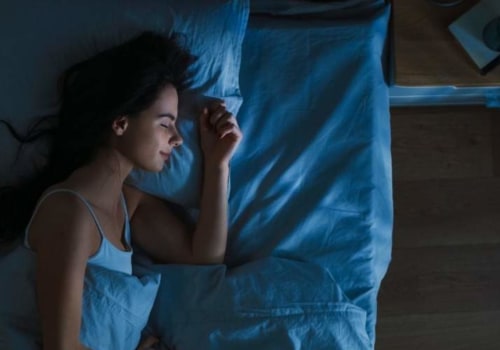Do you ever wake up to find your eyes wide open? You may be surprised to learn that some people SLEEP with their eyes open. It's more common than you might think, with around 20% of people experiencing this condition, known as nocturnal lagophthalmos. If you have it, you can usually close your eyes most of the time when you sleep, but not all of the time. Nocturnal lagophthalmos can be caused by a variety of factors.
Problems with the facial nerves and muscles surrounding the eyelid can prevent the eyelid from closing during sleep. Eyelids can be damaged due to surgery, injury or disease, making it difficult for the eyes to close completely during sleep. In addition, a condition known as droopy eyelid syndrome can also interfere with eye closure, and is often associated with obstructive sleep apnoea (OSA). When night after night, your eyes can become inflamed and the cornea and conjunctiva can form dry spots, ulcers and even scars if left untreated.
It's important to seek medical advice if you think you may be suffering from nocturnal lagophthalmos, as simple remedies such as those mentioned above can effectively solve the problem and help you sleep better. In more severe cases, doctors may recommend the use of a special tape to keep your eyes closed at night, or a goggle-like device that provides moisture during sleep. Nocturnal lagophthalmos also reduces the eye's ability to discharge pollutants such as dust and debris that fall into the eye during the night. Most people realise they have slept with their eyes open because someone else tells them they have done so. It may seem strange, but nocturnal lagophthalmos is actually considered a form of facial paralysis; it affects the orbicularis oculi muscle of the eyelid and can be temporary or permanent.
Don't let your uncomfortable sleep-related eye symptoms go untreated, and you'll finally get the serious rest you deserve. Nocturnal lagophthalmos is a condition that affects many people around the world. It is important to understand what causes it and how it can be treated in order to get a good night's sleep. If you think you may be suffering from nocturnal lagophthalmos, it is important to seek medical advice as soon as possible in order to prevent any further damage to your eyes.












Leave a Comment